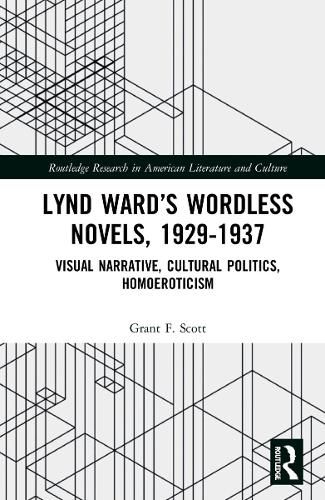Readings Newsletter
Become a Readings Member to make your shopping experience even easier.
Sign in or sign up for free!
You’re not far away from qualifying for FREE standard shipping within Australia
You’ve qualified for FREE standard shipping within Australia
The cart is loading…






This book offers the first multidisciplinary analysis of the wordless novels of American woodcut artist and illustrator Lynd Ward (1905-1985), who has been enormously influential in the development of the contemporary graphic novel. The study examines his six pictorial novels, each part of an evolving experiment in a new form of visual narrative that offers a keen intervention in the cultural and sexual politics of the 1930s. The novels form a discrete group - much like Beethoven’s piano sonatas or Keats’s great odes - in which Ward evolves a unique modernist style (cinematic, expressionist, futurist, realist, documentary) and grapples with significant cultural and political ideas in a moment when the American experiment and capitalism itself hung in the balance. In testing the limits of a new narrative form, Ward’s novels require a versatile critical framework as sensitive to German Expressionism and Weimar cinema as to labor politics and the new energies of proletarian homosexuality.
$9.00 standard shipping within Australia
FREE standard shipping within Australia for orders over $100.00
Express & International shipping calculated at checkout
This book offers the first multidisciplinary analysis of the wordless novels of American woodcut artist and illustrator Lynd Ward (1905-1985), who has been enormously influential in the development of the contemporary graphic novel. The study examines his six pictorial novels, each part of an evolving experiment in a new form of visual narrative that offers a keen intervention in the cultural and sexual politics of the 1930s. The novels form a discrete group - much like Beethoven’s piano sonatas or Keats’s great odes - in which Ward evolves a unique modernist style (cinematic, expressionist, futurist, realist, documentary) and grapples with significant cultural and political ideas in a moment when the American experiment and capitalism itself hung in the balance. In testing the limits of a new narrative form, Ward’s novels require a versatile critical framework as sensitive to German Expressionism and Weimar cinema as to labor politics and the new energies of proletarian homosexuality.